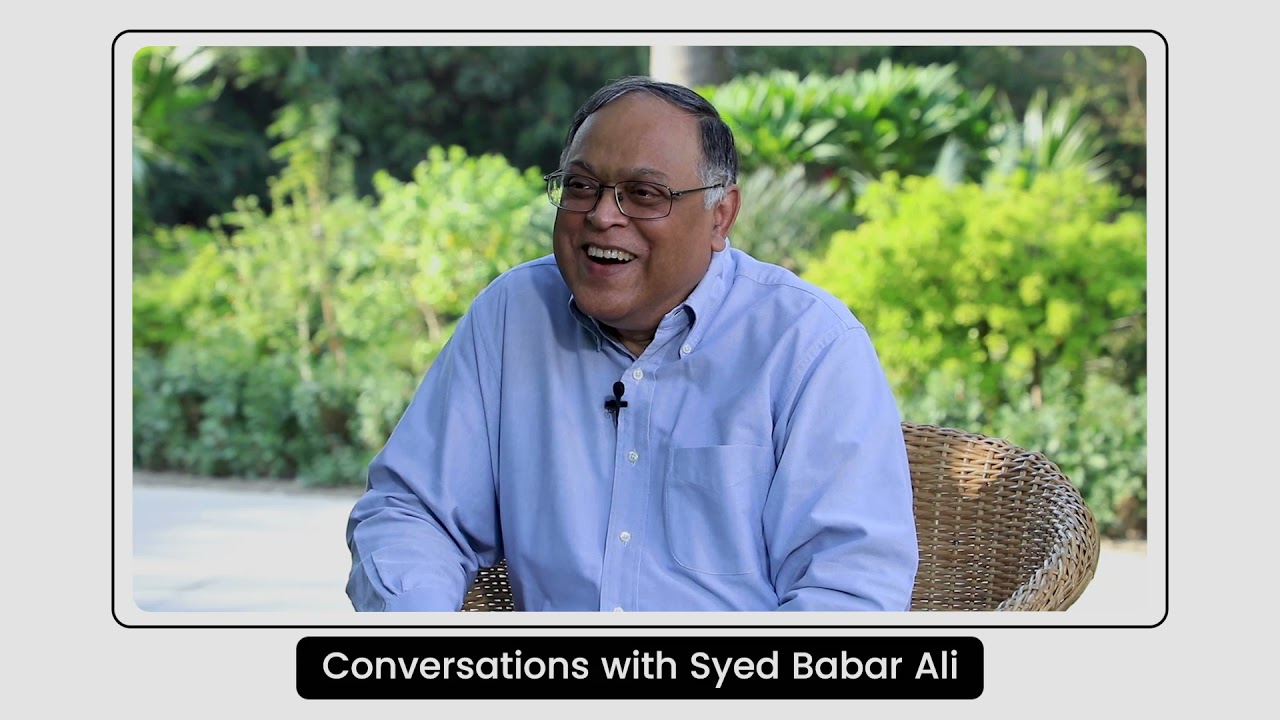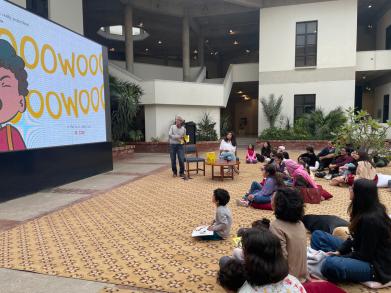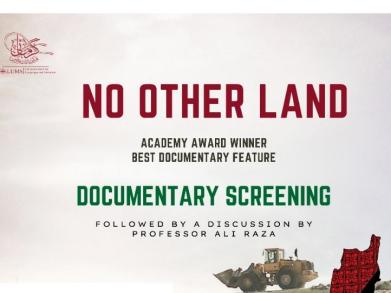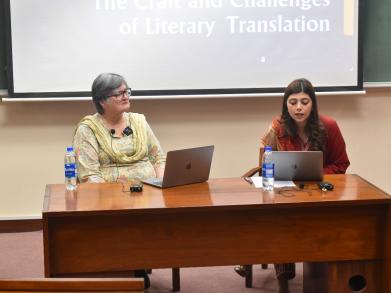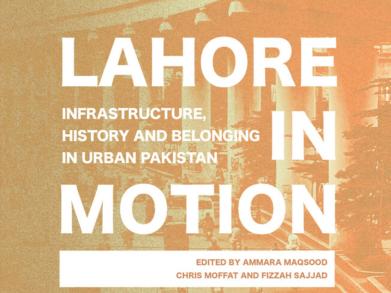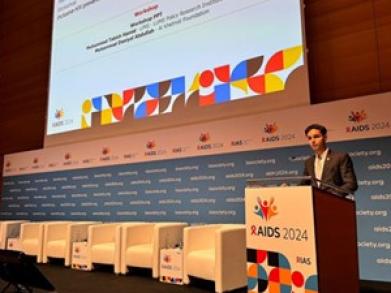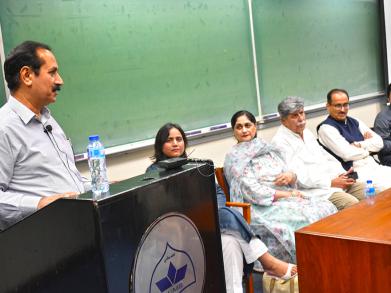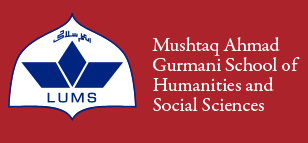From Urdu Fiction to English Fiction: A Literary Journey
The Gurmani Centre for Languages and Literature, LUMS, hosted a conversation titled From Urdu Fiction to English Fiction: A Literary Journey, featuring distinguished writer and scholar Osama Siddique in dialogue with Zahid Hassan. The discussion explored questions of form, language, history, and imagination in Siddique’s fictional works, as well as the broader intellectual stakes of fiction writing in South Asia today. At the outset, Siddique reflected on the structure of the novel, emphasizing how fiction becomes a site for both narrative experimentation and social critique, and noted that the element of dissent is integral to the very form of the novel, allowing writers to push against dominant ideas, conventions, and even linguistic boundaries. In discussing his own literary trajectory, he spoke about the experience of writing first in English with his debut novel Snuffing Out the Moon, then moving to Urdu with Ghurub-e-Shehr ka Waqt, and now returning once again to English through what he carefully described as a transcreation—not a literal translation—of that Urdu work, which is forthcoming under the title Who Knows the Bound of Desire.
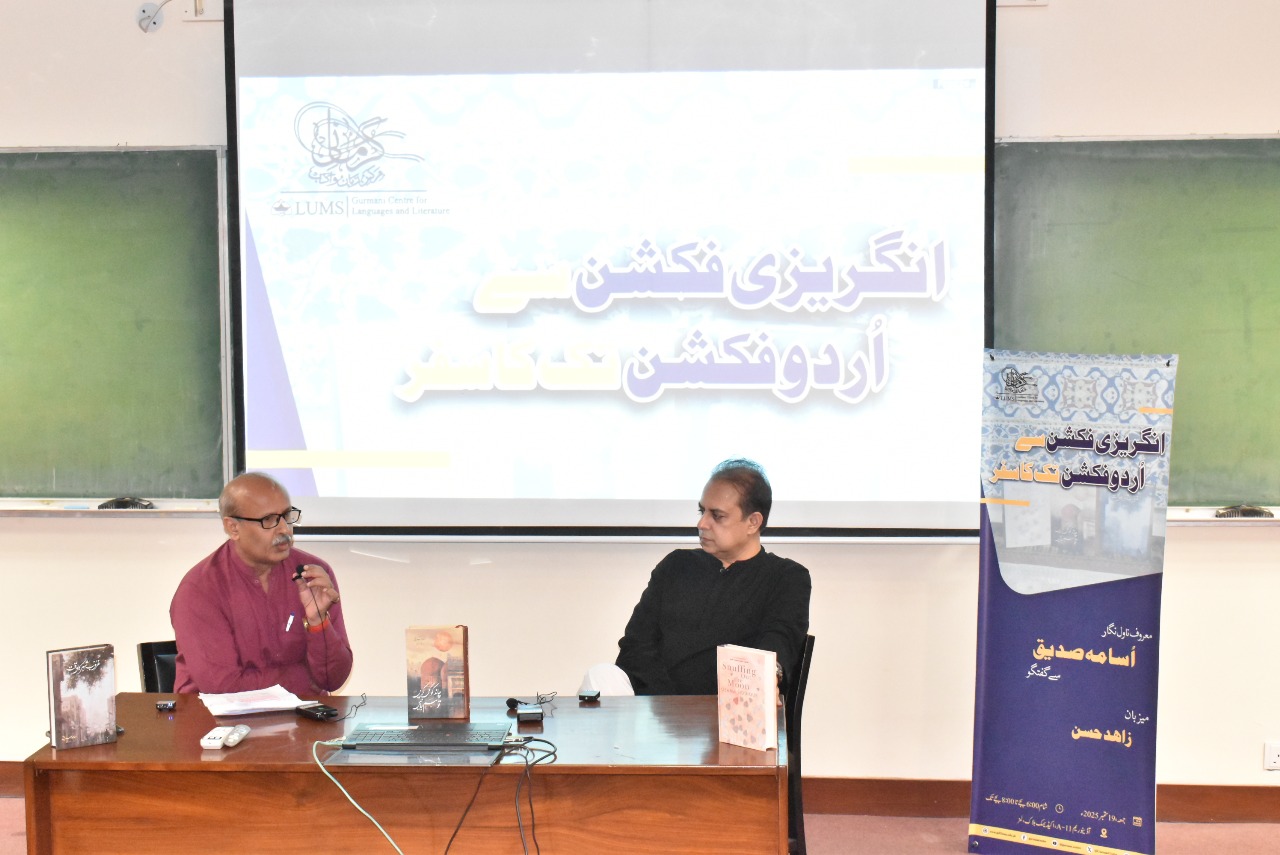
For Siddique, this movement between languages is not simply a matter of shifting vocabulary but of reimagining narrative worlds, cultural resonances, and readership expectations across linguistic boundaries. He emphasized that every language carries its own rhythms, metaphors, and imaginative possibilities, and therefore work cannot be carried over intact but must be recreated to live fully in another linguistic environment. This oscillation between English and Urdu thus reflects not only his personal artistic journey but also the broader negotiations of Pakistani writers with questions of language, identity, and audience in a multilingual literary landscape. When asked about his choice not to write in Punjabi, Siddique described this absence as a cultural failure, observing that the diction and vocabulary of Punjabi remain underdeveloped for certain kinds of modern literary expression, a remark that invited reflection on the politics of language and the uneven literary capital of Pakistan’s linguistic traditions.
He then spoke about his longstanding fascination with history and ruins, particularly those of Taxila, describing his engagement with history as an attempt to unearth and reimagine the basic human narratives that recur across different eras, and suggested that fiction offers a speculative space where fragments of the past can be reanimated and made to converse with the present; in this regard, he invoked Qurratulain Haider’s use of magical transportation and speculative fiction, situating his own practice within a tradition of writers who blur temporal and spatial boundaries to articulate deeper human truths. In turn, Zahid Hassan guided the discussion toward the characters of Siddique’s novels, asking about their origins and development, to which Siddique responded that characters invariably emerge from life itself, yet in fiction they often evolve into archetypes that carry meanings beyond their immediate circumstances, a transformation that allows literature to transcend the individual and resonate with collective human experience.
Another important theme that surfaced was the scholarly nature of Siddique’s novels; while acknowledging the density of his work, he emphasized that the readership of serious fiction must not be underestimated, insisting that literature must continue to challenge, provoke, and demand intellectual engagement, rather than merely seeking accessibility. Finally, Siddique underscored that the art of storytelling and fiction constitute the very basis of a society’s creation, since through stories, communities transmit values, confront contradictions, and imagine possible futures, making fiction not merely an artistic pursuit but also a form of cultural work indispensable to the shaping of collective consciousness. The conversation concluded with perceptive questions from the audience, further extending the discussion on the role of language, history, and narrative in shaping fiction.





